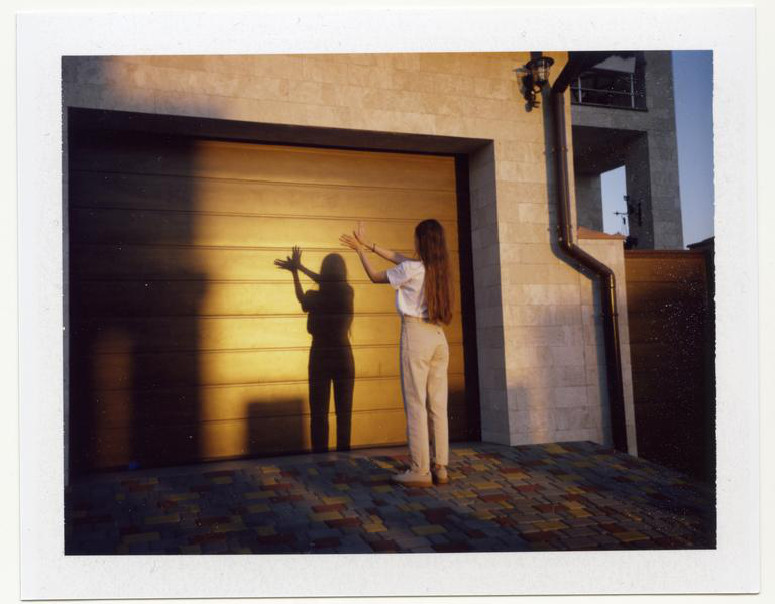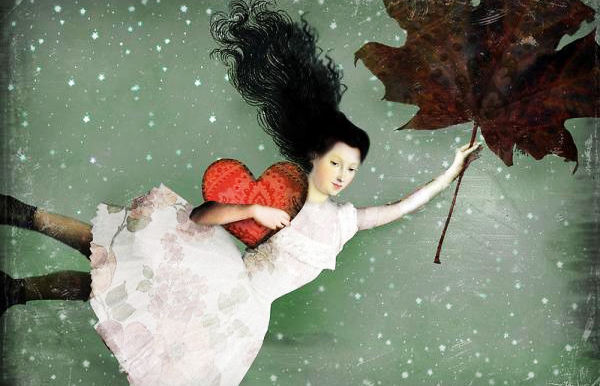love
Salad and Sad Outcomes

Photograph by Genia Volkov
I didn’t have any of the mozzarella. That was the best part of the salad, of course, but watching his fork dig them out of my bowl of balsamic vinegar-soaked leaves, his expression too mischievous for me to believe that he was oblivious to the fact that I wanted them, was more satisfying than the cheese itself could possibly have been.
I didn’t taste much of those meals at all, actually. Most of the hours were spent in conversation, with quickly swallowed mouthfuls leaving room for words that tasted both sharp and sweet. Between bites my fork would hover over my bowl, forgotten for the moment. It was then, as I’d be finishing my critique of some social phenomenon or another, or sharing my latest moment of triumph or confusion, that he’d reach across the table, lightly tap my fork out of the way with his own, and steal more mozzarella. The plastic forks in gentle collision sounded like a wink—an understanding.
I’d always bring over too many napkins so there would be no interruption to the lunch to get up to procure more from the other side of the crowded dining hall. This would give me a solid hour and a half to hear about his week’s dramas, tell him about my classes, and just watch the progression of exaggerated smirks and quiet smiles that crossed his face when he spoke.
It was always a Tuesday or a Thursday that we’d have our lunches, when our schedules matched up and we could text a question mark the night before to confirm without having to debate the details. The two salad bowls between us, identical to the ingredient, divided our space, and for me that table was the only one in the vast room. He ate quickly, nodding and laughing, but never when I’d expect; he finished his meal without touching the napkins.
My own salad disappeared more slowly, in distracted bursts. After a while, noticing him finish, I would push the remainder of my salad closer to the middle of the table, and he would snag a few leaves intermittently before I formally surrendered the rest of my portion to him—he took it with obviously staged reluctance. When finished, he slid my empty bowl into his and placed the saucy stack beside us, and I’d stare at it—a coming together, a physical proof of the work of an hour. The table lay clear, the only food left a smudge of avocado on his lower lip. I stared at it as he spoke, imagining having the nerve to wipe it off with my fingers.
And then the hour would end. Sometimes he’d walk me to my next class, and others I would walk him to his. It was never an intentional thing, a chivalrous gesture or moment of ceremony. It was more like we’d forget that conversations aren’t little lives being lived in collection, created by my laughs and his sunny eyes and the things we confided. And then we’d find ourselves on thresholds and it would end—-at least the reality of it, because whatever we discussed would preoccupy me for the rest of the week, until I saw him again.
But those stories were the only lives we lived together, the only thing we created, the only us. And now when I don’t eat mozzarella, it isn’t because it’s being stolen from my plate, but because I’ve undergone a theft much more profound—of laughter, of trust—and salad just tastes like disappointment.
__
Francesca von Krauland is a Miami-born Cuban and Austrian writer. She is a lover of cappuccinos, cats, and conversations that go on for hours.
More by this writer:
- Traveling Alone With My Thoughts
- Sides
- Clarity
- Surfaces
- To Be Carefree
- Reclaiming My Body After Your Love
- Can I Escape the Person My Family Made Me?
Be the first to write a comment.
Your feedback
